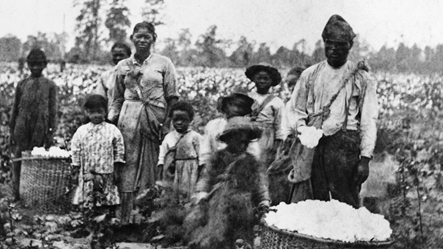By: Mohammed Ali

On August 23rd, the world marks the International Day for the Remembrance of the Slave Trade and Its Abolition, a UNESCO-recognized observance that honors the victims of one of the darkest chapters in human history and celebrates the struggles for freedom and justice.
The day was established by UNESCO to commemorate the uprising of enslaved Africans in Santo Domingo (now Haiti and the Dominican Republic) on August 23, 1791, which ultimately led to the abolition of slavery in the region. UNESCO’s initiative aims to promote awareness of the historical significance of the transatlantic slave trade and its enduring impact on societies worldwide.
The transatlantic slave trade forcibly removed millions of Africans from their homeland between the 16th and 19th centuries, subjecting them to unimaginable suffering. The observance seeks to remind the world of the inhumanity of slavery, the resilience of those who resisted, and the importance of combating all forms of modern slavery and human trafficking.
On this day, ceremonies, educational programmes, and cultural events are held across Africa, Europe, the Americas, and the Caribbean. In many countries, memorials, museums, and public lectures highlight the contributions of Africans and the resilience of enslaved communities. Schools and universities engage students in discussions on historical injustices, human rights, and the ongoing fight for equality.
The remembrance day serves as a powerful reminder of how slavery shaped societies, economies, and cultural identities. It reinforces global solidarity against discrimination and exploitation and encourages communities to address the legacies of slavery that persist in social inequalities, racial prejudices, and economic disparities.
Throughout history, there were voices that rejected the notion of freedom for enslaved Africans, rationalizing enslavement through false ideologies of racial superiority and economic necessity. The day challenges these outdated justifications and promotes human dignity, equality, and justice for all.
The rebellion on August 23, 1791, symbolizes the ultimate rejection of oppression and the fight for liberty. Across generations, enslaved Africans resisted captivity, revolted, and demanded recognition of their rights as human beings, inspiring movements that led to the formal abolition of slavery in many parts of the world.
While legal slavery has been abolished, modern forms of exploitation, human trafficking, and systemic inequalities still plague societies. The observance emphasizes the need for continued vigilance and action to ensure that freedom, justice, and equality are upheld globally.
For Africa, the day is not only a remembrance of past suffering but also a call to action. African nations continue to confront the lingering effects of colonialism, economic exploitation, and social disparities. Educating younger generations, preserving African heritage, and fostering social justice remain critical to building a future where the continent’s people thrive without oppression.
August 23rd stands as both a somber reflection on history and a hopeful reminder that freedom, dignity, and resilience are enduring values that Africans and the global community must continue to protect.
Stone Reporters News
📩 Contact us: info@stonereportersnews.com
🌍 Website: stonereportersnews.com
🔗 Follow Stone Reporters for trusted updates on governance, legislative affairs, and national development.
📘 Facebook: Stone Reporters | 🐦 X (Twitter): @StoneReportNews


Add comment
Comments